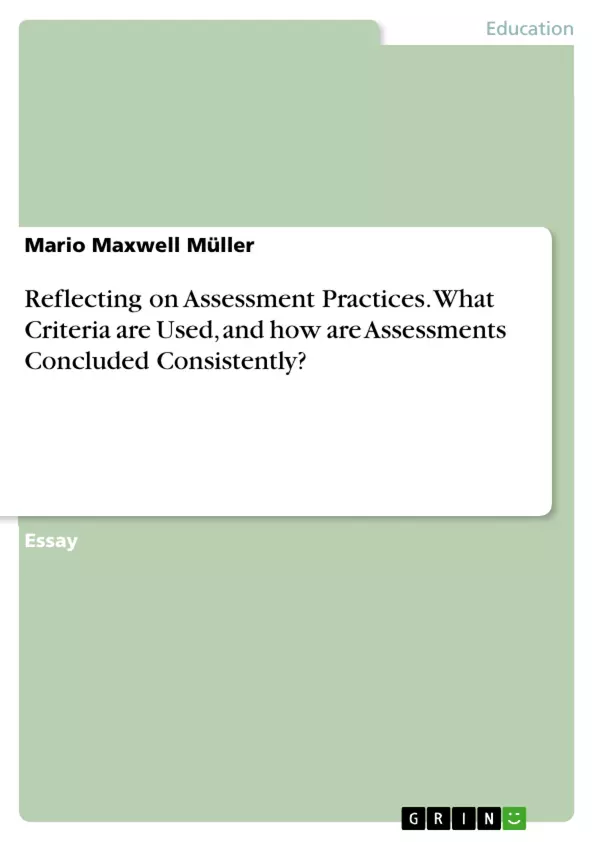The following essay will discuss a case study of evaluating the assessment practices within your own school setting. The author explains what criteria are used within his own school setting, how assessments are concluded consistently, allowing students to grow, and educators support them in order to achieve and reach their full potential. These strategies are imperative in an international school setting, where you have students from diverse cultural backgrounds.
Inhaltsverzeichnis (Table of Contents)
- Introduction
- Year Groups, Location, and subject matter
- Analysis of current practices used in the School
- Examine whether assessment in your school is used FOR learning, AS learning, or OF learning.
- Examine whether there is a need for change in the assessment practices in your school.
Zielsetzung und Themenschwerpunkte (Objectives and Key Themes)
This essay examines the assessment practices used in an international school in West Africa. It focuses on how these practices contribute to student growth and motivation, and how they address the diverse cultural backgrounds of the student population.
- Assessment practices in international schools
- Formative and summative assessment techniques
- The role of assessment in student motivation and growth
- The impact of cultural diversity on assessment practices
- The importance of effective communication between teachers, parents, and students
Zusammenfassung der Kapitel (Chapter Summaries)
- Introduction: The paper introduces the focus on assessing the current assessment practices in the author's school, which serves as a case study for other educators to learn from.
- Year Groups, Location, and subject matter: This section details the school's structure, encompassing various age groups and adherence to the IB curriculum.
- Analysis of current practices used in the School: This chapter delves into the frequent use of assessments across all school levels and highlights the integration of formative assessment strategies. It emphasizes the ongoing provision of feedback and reporting to parents, aiming to encourage student engagement and support their progress.
- Examine whether assessment in your school is used FOR learning, AS learning, or OF learning.: This section explores the various forms of assessment utilized in the school, focusing on their purpose and effectiveness in facilitating student learning.
Schlüsselwörter (Keywords)
This essay explores the use of assessment practices in educational institutions, particularly within an international school setting. The key themes include formative assessment, summative assessment, cultural diversity, student motivation, and effective communication between educators, parents, and students. The paper emphasizes the importance of consistent assessment methods and the use of online tools for collaborative learning and feedback.
Frequently Asked Questions
What are the three main types of assessment discussed?
The essay examines whether assessment is used FOR learning (formative), AS learning (self-assessment), or OF learning (summative).
How does cultural diversity affect assessment in international schools?
Strategies must be adapted to support students from diverse backgrounds, ensuring they can reach their full potential regardless of cultural differences.
What curriculum does the school in the case study follow?
The school adheres to the International Baccalaureate (IB) curriculum, which emphasizes specific assessment standards.
Why is communication with parents important in assessment?
Ongoing feedback and reporting to parents are highlighted as essential for encouraging student engagement and progress.
Where is the international school located?
The case study focuses on an international school setting in West Africa.
- Quote paper
- Mario Maxwell Müller (Author), 2022, Reflecting on Assessment Practices. What Criteria are Used, and how are Assessments Concluded Consistently?, Munich, GRIN Verlag, https://www.grin.com/document/1284936



